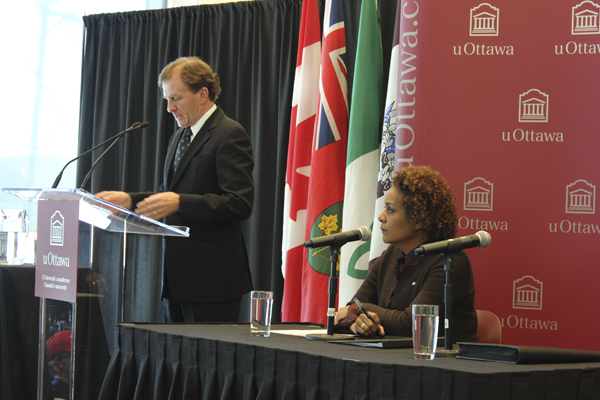For students in their final semesters of their programs, the reduction in course selection can mean a delay in graduation
The University of Ottawa has been implementing a series of cutbacks that include reducing the number of classes offered in the upcoming academic year. The decision has consequences for faculty staff and students, raising concerns about the quality of education and overall campus experience being offered.
As students were picking out their courses for upcoming semesters, they were met with a noticeable drop in class availability. The U of O attracts many of its students by advertising a wide range of options for courses for each program. However, with recent budget cutbacks, students are facing a loss in choices for course selection. This loss not only affects students; it is also affecting faculty members—most significantly, part-time professors.
The Vice President of the Association of Part-Time Professors of the University of Ottawa (APTPUO), Luc Angers, represents roughly 2000 part-time professors and has spoken up about the impacts of such budget cuts. According to Angers, the morale of faculty staff, especially part-timers, has decreased at an alarming rate.
“It affects our quality of work or worth to the administration,” Angers told the Fulcrum.
The declining morale among part-time professors is in large part due to their lack of job security and benefits compared to full-time faculty, as well as the substantial disparities in their income compared to their tenured colleagues.
Angers describes the consequences of the budget cutbacks as a domino effect. He explained this effect: “once they reduce the budget allocation for professors’ income and job offers, then it impacts the class size. And then finally, if it’s a smaller department, then they’re more likely to close [that] department and diffuse the registration from students [to] other classes.”
In addition to affecting faculty, the reduction or consolidation of certain classes also significantly impacts students. For students in their final semesters of their programs, the reduction in course selection can mean a delay in graduation. A limited availability of required mandatory courses means students may need to extend their time at the university, incurring additional costs.
Students who rely on smaller, more focused courses for a personalized learning experience are also affected. Larger class sizes and fewer course options also threaten to diminish engagement and one-on-one interaction with professors.
As the university navigates its financial challenges, the broader implications of these cuts on the academic environment remain a major concern. The reduction in classes not only threatens the livelihoods of part-time professors but also risks compromising the educational experience of students.
The impact these cuts have on the academic community is undeniable. Students are left with fewer options, potentially delaying their academic progress and altering the quality of their education. Part-time professors are facing job insecurity, diminished morale, and the disintegration of their professional contributions.
Budget reductions are sparking a major concern among faculty and students about the future direction of the institution. These coming semesters will be critical in determining how the university will address these challenges while upholding its commitment to its community.









